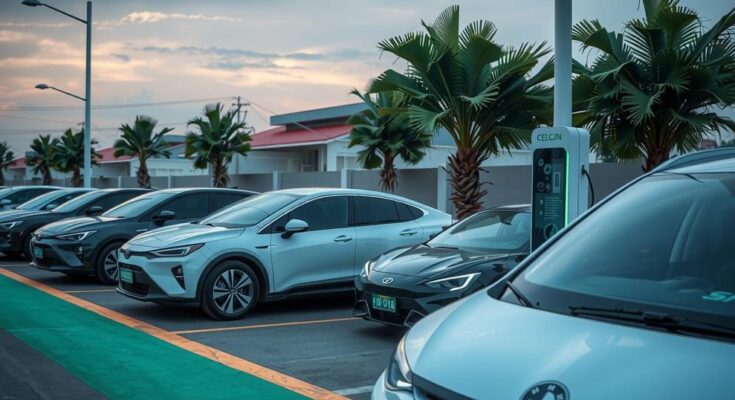Sunday Aluko, an automotive expert, advocates for Nigeria to adopt electric vehicles to reduce dependence on imported fuel and improve transportation. He calls for urgent reforms and infrastructure development, urging government incentives to promote electric vehicle adoption. Aluko emphasizes partnerships with global manufacturers to lower costs and generate jobs. His vision includes innovative strategies for a sustainable automotive industry in Nigeria, highlighting economic opportunities and environmental benefits.
Sunday Aluko, a Nigerian expert based in the United States with significant experience in the automotive manufacturing sector, has emphasized the potential advantages of adopting electric vehicles in Nigeria. He asserts that the shift towards electric vehicles could significantly reduce the nation’s dependence on imported fuels and transform its transportation system. Aluko advocates for necessary reforms across Nigeria’s energy, transportation, and vehicle manufacturing industries to support this transition.
Amidst escalating fuel inflation and frequent shortages, Aluko identifies the adoption of eco-friendly electric vehicles as a viable solution to Nigeria’s pressing energy and transportation challenges. He has undertaken research to uncover how electric vehicles might address these issues through both environmental sustainability and economic opportunities for the nation. Aluko underscored the necessity of prioritizing electric vehicle adoption and developing the essential infrastructure to mitigate environmental damage and enhance economic prospects.
However, Aluko recognized the significant barrier posed by the absence of critical infrastructure, particularly charging stations, that hampers the widespread adoption of electric vehicles. He called on the Nigerian government to implement incentives, such as lowering import duties on electric vehicles and offering tax breaks to manufacturers, to create a conducive environment for this shift. “This situation underscores the importance of creating a favorable environment for electric vehicle adoption. Without the right policies and infrastructure, the transition will remain a distant goal,” he stated.
Aluko also advocated for partnerships with international electric vehicle manufacturers to expedite local production capabilities, which could lower costs and create job opportunities in Nigeria. He elaborated on his vision for a sustainable automotive industry, asserting, “I am particularly focused on enabling Nigeria to lead in green mobility solutions in Africa. The shift to electric vehicles is not just an environmental necessity; it is an economic opportunity.”
He asserted that increased investment in electric vehicle infrastructure and public awareness campaigns will facilitate a significant reduction in reliance on imported fuels while simultaneously enhancing transportation efficiency for Nigerians. Furthermore, he urged for innovative methods to promote electric vehicle adoption, including the establishment of solar-powered charging stations and affordable financing options for consumers.
Aluko emphasized that these initiatives represent the foundational steps needed to decrease fuel dependency and elevate Nigeria’s status as a leader in sustainable transportation across Africa. “With the right policies, infrastructure, and public awareness, Nigeria can transition to electric vehicles, creating a future of economic growth, environmental sustainability, and energy independence,” Aluko concluded.
The automotive industry is facing a global shift towards electric vehicles, driven by the need for sustainable solutions to energy consumption and environmental degradation. Particularly in Nigeria, where fuel dependency remains a critical issue, electric vehicles present an opportunity not only to reduce reliance on imported fuels but also to enhance the overall efficiency of transportation. The call for reforms in relevant sectors highlights a movement towards innovation and economic opportunity in the automotive market.
In summary, Sunday Aluko’s advocacy for electric vehicles in Nigeria underscores the dual opportunity of environmental sustainability and economic advancement. With proper infrastructure, government incentives, and strategic partnerships, Nigeria can transition to an electric vehicle landscape, addressing both current fuel challenges and paving the way for future growth. Ultimately, Aluko’s vision reflects the potential for Nigeria to emerge as a leader in green automotive solutions within Africa.
Original Source: punchng.com




